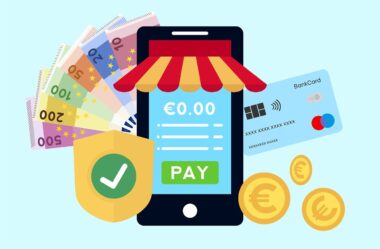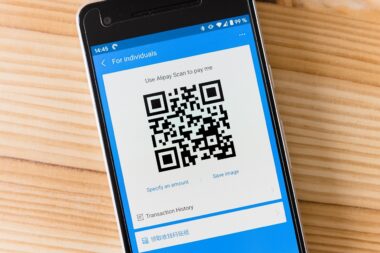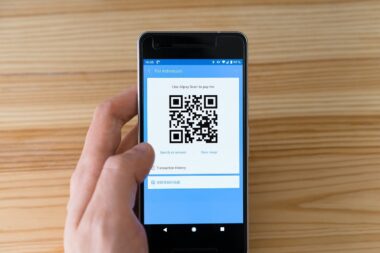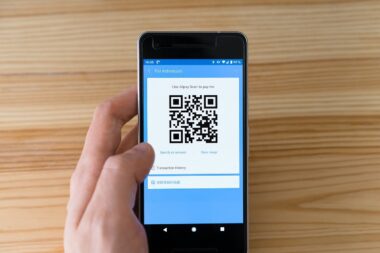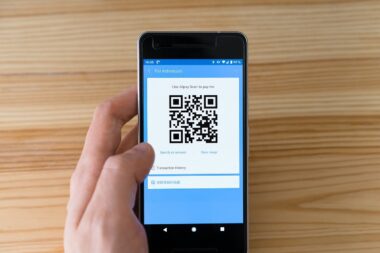How Blockchain Technology Could Revolutionize In-App Payments
In-app payments have become essential for businesses aiming to maximize their revenue from mobile applications. As the demand for seamless and secure payment solutions grows, integrating blockchain technology offers unparalleled advantages. By leveraging blockchain, developers can create systems that are not only decentralized but also provide robust security and transparency. This decentralization minimizes the risk of fraud and chargebacks while ensuring users’ data integrity. Moreover, utilizing smart contracts can streamline the entire payment process, reducing the time needed for transactions to be verified. Smart contracts automatically execute and validate transactions once pre-defined conditions are met, eliminating the need for intermediaries. This results in faster processing times and lower fees for both merchants and consumers. Consumer trust is also heightened as blockchain’s immutable ledger ensures that all transactions are publicly recorded and cannot be altered retroactively. Therefore, users feel more confident in conducting transactions. Furthermore, in-app payments utilizing blockchain facilitate cross-border transactions without incurring high fees, making global commerce more accessible. With its numerous benefits, blockchain technology may well become the backbone of the in-app payment ecosystem.
The incorporation of cryptocurrencies in in-app payment systems further enhances the appeal of blockchain technology. By allowing users to pay with digital currencies, developers can cater to a broader audience, including tech-savvy millennials who prefer crypto over traditional payment methods. Users enjoy the convenience of transacting with cryptocurrencies, such as Bitcoin or Ethereum, that offer greater privacy and reduced transaction fees. Additionally, cryptocurrencies allow for real-time transactions, offering a significant edge over conventional banking methods that often involve delays. The decentralization offered by cryptocurrencies also means that geographical limitations diminish, making it easy for users worldwide to access and utilize these payment methods. This capability opens up a global market for app developers, consequently driving more engagement and user retention. Furthermore, integrating cryptocurrencies into in-app purchases can enhance user loyalty through incentives like rewards or discounts for those choosing this payment method. It also encourages users to spend more, thus benefiting app developers. As users become increasingly familiar with cryptocurrencies, educating them about these options within the app’s framework can foster a sense of community around the brand or product.
Decentralization and Financial Inclusion
Decentralization offers an intriguing approach to in-app payments, allowing users to bypass traditional banking restrictions. This approach can provide financial services to unbanked populations, globally expanding accessibility to digital products and services. Many users in remote regions lack access to traditional banking services, but with a smartphone and internet connection, they can utilize blockchain and crypto for transactions. Through in-app payments, these individuals can conduct financial exchanges with much lower barriers than traditional payment systems provide. Furthermore, blockchain allows for direct peer-to-peer transactions, eliminating excessive fees charged by intermediary institutions. Empowering users with such access can lead to enhanced financial literacy, increased economic activity, and entrepreneurship in developing markets, thus fostering economic growth. Additionally, incorporating educational resources within applications about the advantages of blockchain and cryptocurrencies can further increase understanding and usage. Developers stand to gain significantly by tapping into this growing user base while enhancing their social impact. Moreover, promoting efforts towards financial inclusivity can serve as a powerful marketing strategy that resonates with socially conscious consumers.
Security remains a primary concern in digital transactions, and blockchain technology addresses these challenges effectively. Transactions made via blockchain are encrypted, making it extremely difficult for cybercriminals to infiltrate systems and alter transaction data. Unlike traditional payment methods, which often fall victim to data breaches, blockchain’s unique protocol ensures that each transaction is recorded on a decentralized ledger. This technology helps maintain a secure environment for sensitive user information, improving trust between consumers and businesses. Additionally, regular updates and developments in blockchain technology are improving security measures continuously, making in-app transactions even more secure. The potential for user identity verification through blockchain technology also provides businesses with reliable means to ensure that transactions are legitimate. Enhanced security features reduce instances of identity theft and fraudulent transactions, resulting in lower operational costs for businesses and providing consumers with peace of mind. Implementing blockchain in in-app payments can significantly reduce instances of chargebacks and disputes, leading to smoother transactions overall. As a result, businesses can focus their efforts on growth rather than resolving transaction disputes and security breaches.
Streamlined User Experience
User experience is a critical factor for the success of any mobile application. Implementing blockchain technology can simplify the payment process, making it more efficient for users. Conventional payment solutions can involve multiple steps, causing friction and dissatisfaction among users. With blockchain, users can bypass many of these cumbersome steps as all necessary user verifications can occur on-chain. Streamlined payment processes lead to higher conversion rates and improved user retention, as satisfied users are more likely to return to applications that offer hassle-free transactions. Furthermore, the immediacy of transactions in blockchain payments enhances the overall satisfaction, as users expect instant accessibility to their purchased content or services. By minimizing the waiting period associated with traditional payment methods, blockchain empowers businesses to meet user expectations effectively. Personalization is another aspect that blockchain can enhance as, through using smart contracts, developers can offer tailored deals or suggestions based on past behavior and preferences. This personalization element creates a more engaging in-app experience, encouraging users to explore further and maximize their spending.
The integration of blockchain in in-app payments is not without its challenges. Developers must navigate regulatory requirements, which can vary considerably across different regions and jurisdictions. Understanding and complying with these regulations is vital to avoid potential legal pitfalls that could hinder operations and impact user trust. Additionally, as blockchain technology continues to evolve, keeping up with the latest developments is crucial for developers to ensure they are utilizing the most secure and efficient methods available. Education and transparency regarding these technologies are necessary to build consumer confidence and alleviate concerns. Many users are still unfamiliar with cryptocurrency, thus, providing educational resources on how to use blockchain for in-app payments can mitigate skepticism. Furthermore, addressing potential scalability issues is vital, as many current blockchain networks struggle with high transaction volumes. Developers must choose the right blockchain solutions that offer robust performance without sacrificing security. Innovation in this space is continuously happening, and collaborating with established blockchain companies may be beneficial for startups exploring this avenue. Despite these challenges, the potential rewards of integrating blockchain technology into in-app payments are tremendous.
Future Prospects and Opportunities
The future of in-app payments looks promising with the ongoing integration of blockchain technology. As mobile applications continue to dominate consumer engagement, businesses must adapt to meet changing payment preferences. Evidence suggests that adopting blockchain in various sectors is not just a trend but a substantial shift toward decentralized economic models. The anticipated growth in cryptocurrency adoption can further solidify the role of blockchain in facilitating digital transactions. Companies that invest in such technologies will likely benefit from increased revenue opportunities and greater customer satisfaction. Furthermore, continued innovation in blockchain technology, particularly in speed and security, creates opportunities for businesses to differentiate themselves in competitive markets. Implementing unique features that leverage blockchain may position innovators as pioneers in their respective industries. Additionally, as industries embrace sustainability, blockchain’s transparency can play a pivotal role in demonstrating ethical practices and origins of goods. This adaptability will be essential for maintaining relevance in the digital marketplace. Overall, the fusion of blockchain with in-app payments sets the stage for transformative impacts on user experience, security, and revenue generation.
In summary, the potential of blockchain to revolutionize in-app payments is vast and multifaceted. By providing a decentralized, secure, and efficient payment method, businesses are well-positioned to leverage the capabilities of blockchain technology. The advantages of streamlining processes, improving user experiences, and fostering financial inclusion make blockchain an attractive choice. However, users must also navigate the complexities surrounding regulation and education to maximize the benefits. As the digital payments landscape continues to shift, those embracing innovative technologies, like blockchain, will provide a competitive edge in the ever-evolving market. The continuous advancements being made in the field promise exciting prospects for future developments. In-app payments will gradually become more integrated into consumers’ daily lives, making transactions frictionless and rewarding. Therefore, exploring these opportunities can empower businesses to create better applications that meet user expectations and change how payments are conducted. The collaboration between developers, regulatory bodies, and consumers will play a critical role in the growth of this sector. Investing in research and resources dedicated to blockchain will ensure that businesses stay ahead of the curve in this transformative evolution.



